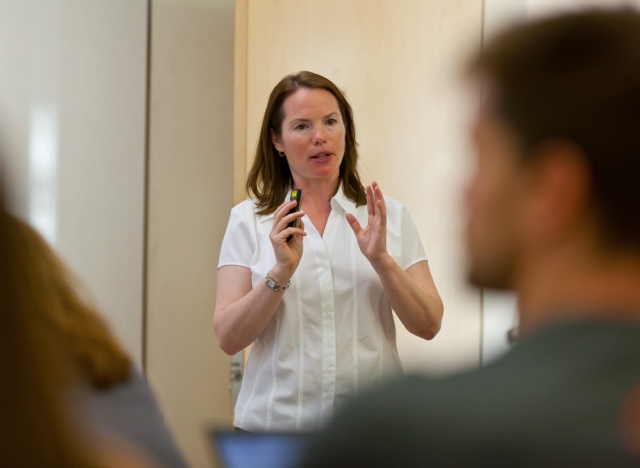
Visiting Assistant Professor Rosalind Billharz teaches a nursing class on pathophysiology this summer at PLU. (Photo by John Froschauer)
A champion for microbes
Everyone, or thing, however small, needs a champion. And for the microbes of the world, they certainly have that in Rosalind Billharz, a visiting assistant professor of biology at Pacific Lutheran University who taught an advanced pathophysiology course for nurses this summer.
Bilharziosis is usually picked up in African or Asian countries by walking through standing water. If you like, she’ll show you a stained slide of the little fellers that sits on her desk in Morken. But enough of that. For the most part, Billharz will stress to you and to her nursing classes she taught this summer, microbes are good.“I guess you could call me the ambassador or prophet for microbes,” she laughed. “You can’t open a newspaper or magazine without coming across some story of their affect on human beings.”
And most of the time, the effect is good, not bad. She starts out her classes by making students list all the good and bad things microbes do. In a short time, the good long outweighs the bad, she noted. “We wouldn’t be here without microbes,” she said.
Her fascination with the critters started first as an undergrad at UCLA and then when she travelled to South Africa, where she received a double major in microbiology and biochemistry from the University of Capetown, and her Ph.D. in microbiology from the University of Washington. After she received her doctorate, Billharz had a decision to make: teaching or research?
She chose teaching and doesn’t regret it a bit. And she loves teaching nurses.
“They don’t get grossed out by the pictures of infections,” she said. “And they are really humane students to teach. They have a genuine compassion for people.”
And yet, they still dig microbes.


